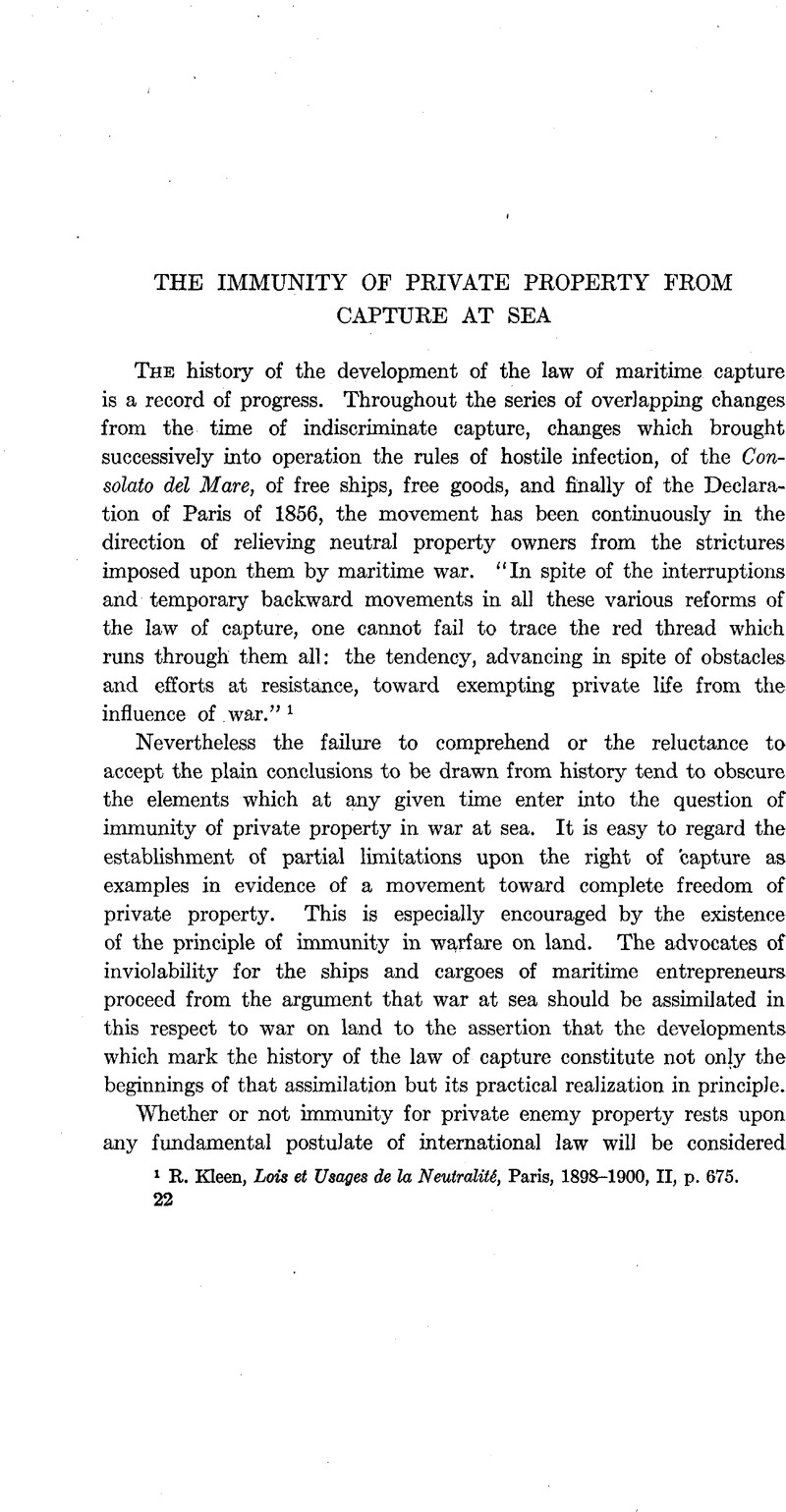Article contents
The Immunity of Private Property from Capture at Sea
Published online by Cambridge University Press: 04 May 2017
Abstract

- Type
- Research Article
- Information
- Copyright
- Copyright © American Society of International Law 1917
References
1 Kleen, R., Lais el Usages de la Neulralité, Paris, 1898-1900, II, p. 675 Google Scholar.
2 Bentwich, N., War and Private Property, London, 1907, p. 95 Google Scholar.
3 Practice in the present war, as in the Russo-Japanese War, goes far to prove that, for a belligerent whose home and colonial ports are blockaded, and who is faced with the present tendency unfavorable to reception of prizes in neutral ports, the practice of destroying prizes has taken the place of capture.
4 Baty, T., “Naval Warfare: Law and License,” this Journal , January, 1916 (Vol. 10), p. 52 Google Scholar.
4 Le Droit de la Guerre Maritime, Paris, 1911, p. 61.
5 Dupuis maintains the theory that capture rests upon a legal principle, as being the sanction of the interdiction of the use of the seas, “seule façon de remplacer sur la mer où la possession et la souveraineté sont impossibles, ce qui est, dans la guerre continentale, l’occupation du territoire.” (See Le Droit de la Guerre Maritime, p. 64 and note 1.)
Peillon contradicts this sentiment: “On ne parle plus du droit d’interdire la mer à ses ennemis. … Car la guerre, aujourd’hui, est un moyen de se faire rendre justice.” La Propriété Privée Ennemie, Paris, 1910, p. 55.
7 Op. tit., II, p. 690.
8 Bluntschli, Droit International Codifié, Paris, 1874, p. 35.
9 Del Bispetto della Proprieta Privata fra gli Stati in Guerra, 1865, quoted by Charles de Boeck in De la Propriété Privée Ennemie sous Pavilion, Ennemi Paris, 1882, pp. 452-455.
10 International Law, Cambridge, 1907, II, p. 130.
11 Questions de Droit Maritime International, Paris, 1868, pp. 102-104.
12 The Times, London, August 4, 1914, p. 2.
13 See, for contrary views upon the question of the illegality of payments by British insurance companies to alien enemies, a leading article in the Manchester Guardian, July 4, 1913, which deals with a statement of Sir Edward Beauchamp, Chairman of Lloyd’s, to the effect that “all such contracts will be faithfully carried out during war as in time of peace,” and an article by N. Bentwich, “Trading with the Enemy,” this Journal, Vol. 9 (1915), pp. 352-372.
14 Ed., “Trade in War Time,” The Political Quarterly, No. 7, March, 1916, pp. 99-121.
15 Charles de Boeck, op. cit., p. 695.
- 1
- Cited by


